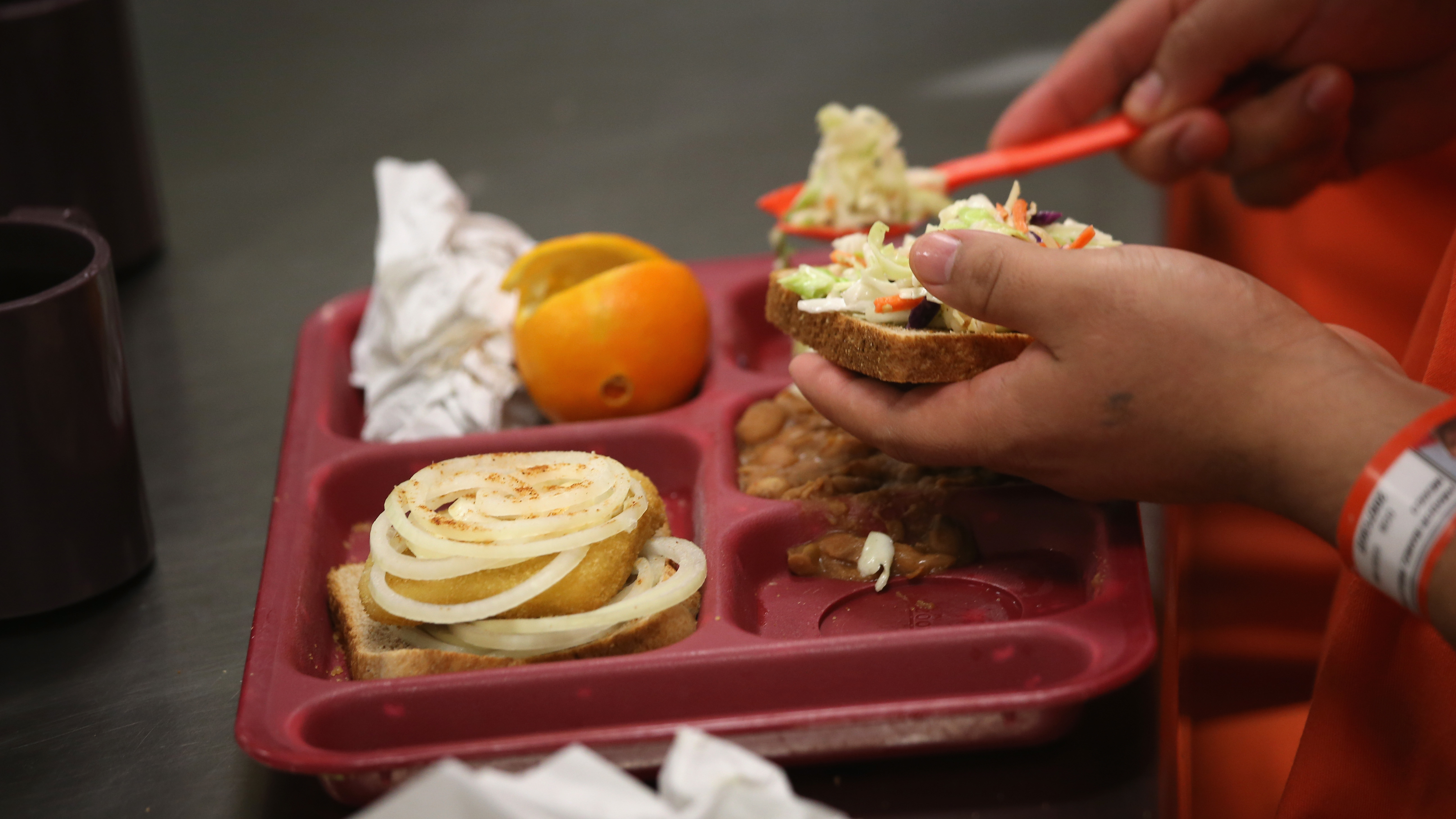Alabama Sheriff Pocketed $750,000 In Inmate Food Money—and Says It's Legal
Generally, when an employee pockets money or goods intended to be distributed to someone else, it's a crime. (Exhibit A: This fajita thief was recently sentenced to 50 years in prison.) But multiple news outlets report that an Alabama sheriff who's been personally drawing from the "excess" funds in his inmate food budget is doing so in compliance with a decades-old law.
Talking Points Memo brought the issue to national attention, citing extensive investigation by AL.com, which found that Etowah County Sheriff Todd Entrekin has received more than $750,000 over the past three years, courtesy of a source he listed as "Food Provisions." It's suspected that Entrekin and his wife used the money to purchase lavish beach houses; Entrekin's base salary is around $90,000. The sheriff says his use of the $750,000 is totally legal under a pre-World War II law allowing sheriffs to personally recoup excess funds not spent on food for inmates. Dozens of sheriffs currently face a lawsuit from the Southern Center for Human Rights over this practice.
"The meat patties they feed you and call it either chicken or Salisbury steak or whatever, it's literally for dog food," a former inmate who'd unpacked some of the prison's kitchen supplies told AL.com. "We called them starfish patties because they look more like a starfish than anything. They literally said in bold red letters plain as day on the top, bottom and sides of the box, 'Not Fit For Human Consumption.'"
Sheriff Entrekin brushes off persistent complaints about the facility's food quality.
"This is a jail. This is not a bed and breakfast. Domino's does not deliver here," he told AL.com.
Meanwhile, at least one state in the union is actually trying to upgrade the quality of food it serves to inmates—even if that food costs more. The Hartford Courant reports the office of Governor Dannell P. Malloy wants to increase the money spent on food in prison to provide higher-quality meals. Currently, the state spends $2.95 per inmate daily; Malloy would like to increase it 10 percent. He says this will save money in the long run by reducing health-care costs once those inmates are released.
Want to dive even deeper into the world of prison kitchens? Meet the cellblock chefs of Westville Correctional Facility.
